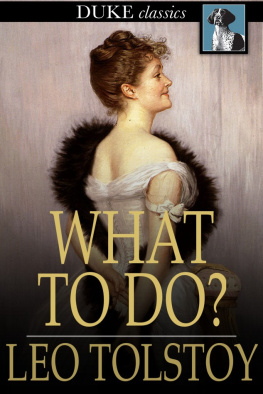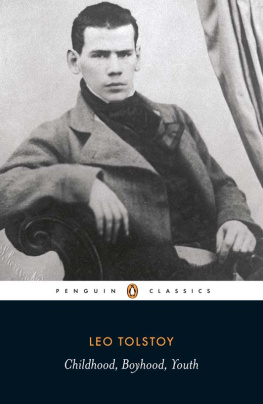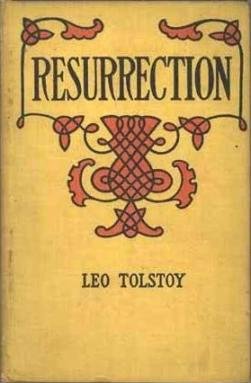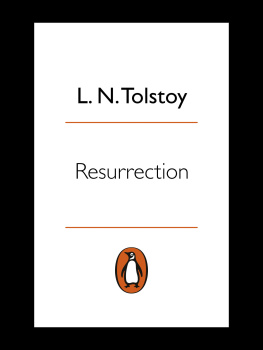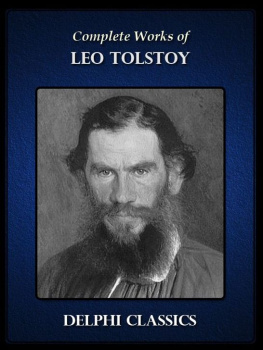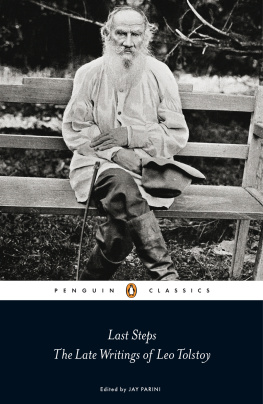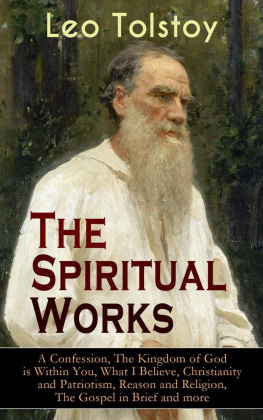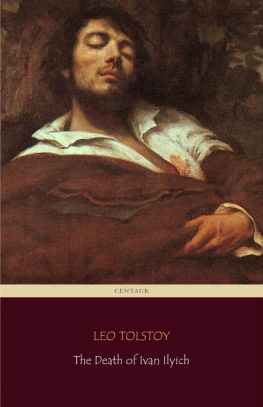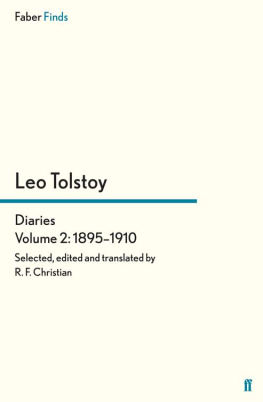Leo Tolstoy - Childhood
Here you can read online Leo Tolstoy - Childhood full text of the book (entire story) in english for free. Download pdf and epub, get meaning, cover and reviews about this ebook. year: 2004, genre: Home and family. Description of the work, (preface) as well as reviews are available. Best literature library LitArk.com created for fans of good reading and offers a wide selection of genres:
Romance novel
Science fiction
Adventure
Detective
Science
History
Home and family
Prose
Art
Politics
Computer
Non-fiction
Religion
Business
Children
Humor
Choose a favorite category and find really read worthwhile books. Enjoy immersion in the world of imagination, feel the emotions of the characters or learn something new for yourself, make an fascinating discovery.

- Book:Childhood
- Author:
- Genre:
- Year:2004
- Rating:4 / 5
- Favourites:Add to favourites
- Your mark:
- 80
- 1
- 2
- 3
- 4
- 5
Childhood: summary, description and annotation
We offer to read an annotation, description, summary or preface (depends on what the author of the book "Childhood" wrote himself). If you haven't found the necessary information about the book — write in the comments, we will try to find it.
Childhood — read online for free the complete book (whole text) full work
Below is the text of the book, divided by pages. System saving the place of the last page read, allows you to conveniently read the book "Childhood" online for free, without having to search again every time where you left off. Put a bookmark, and you can go to the page where you finished reading at any time.
Font size:
Interval:
Bookmark:
On the 12th of August, 18 (just three days after my tenth birthday, when I had been given such wonderful presents), I was awakened at seven o'clock in the morning by Karl Ivanitch slapping the wall close to my head with a flyflap made of sugar paper and a stick. He did this so roughly that he hit the image of my patron saint suspended to the oaken back of my bed, and the dead fly fell down on my curls. I peeped out from under the coverlet, steadied the still shaking image with my hand, flicked the dead fly on to the floor, and gazed at Karl Ivanitch with sleepy, wrathful eyes. He, in a particoloured wadded dressinggown fastened about the waist with a wide belt of the same material, a red knitted cap adorned with a tassel, and soft slippers of goat skin, went on walking round the walls and taking aim at, and slapping, flies.
"Suppose," I thought to myself, "that I am only a small boy, yet why should he disturb me? Why does he not go killing flies around Woloda's bed? No; Woloda is older than I, and I am the youngest of the family, so he torments me. That is what he thinks of all day longhow to tease me. He knows very well that he has woken me up and frightened me, but he pretends not to notice it. Disgusting brute! And his dressinggown and cap and tassel toothey are all of them disgusting."
While I was thus inwardly venting my wrath upon Karl Ivanitch, he had passed to his own bedstead, looked at his watch (which hung suspended in a little shoe sewn with bugles), and deposited the flyflap on a nail, then, evidently in the most cheerful mood possible, he turned round to us.
"Get up, children! It is quite time, and your mother is already in the drawingroom," he exclaimed in his strong German accent. Then he crossed over to me, sat down at my feet, and took his snuffbox out of his pocket. I pretended to be asleep. Karl Ivanitch sneezed, wiped his nose, flicked his fingers, and began amusing himself by teasing me and tickling my toes as he said with a smile, "Well, well, little lazy one!"
For all my dread of being tickled, I determined not to get out of bed or to answer him, but hid my head deeper in the pillow, kicked out with all my strength, and strained every nerve to keep from laughing.
"How kind he is, and how fond of us!" I thought to myself. "Yet to think that I could be hating him so just now!"
I felt angry, both with myself and with Karl Ivanitch, I wanted to laugh and to cry at the same time, for my nerves were all on edge.
"Leave me alone, Karl!" I exclaimed at length, with tears in my eyes, as I raised my head from beneath the bedclothes.
Karl Ivanitch was taken aback, He left off tickling my feet, and asked me kindly what the matter was, Had I had a disagreeable dream? His good German face and the sympathy with which he sought to know the cause of my tears made them flow the faster. I felt consciencestricken, and could not understand how, only a minute ago, I had been hating Karl, and thinking his dressinggown and cap and tassel disgusting. On the contrary, they looked eminently lovable now. Even the tassel seemed another token of his goodness. I replied that I was crying because I had had a bad dream, and had seen Mamma dead and being buried. Of course it was a mere invention, since I did not remember having dreamt anything at all that night, but the truth was that Karl's sympathy as he tried to comfort and reassure me had gradually made me believe that I HAD dreamt such a horrible dream, and so weep the morethough from a different cause to the one he imagined.
When Karl Ivanitch had left me, I sat up in bed and proceeded to draw my stockings over my little feet. The tears had quite dried now, yet the mournful thought of the invented dream was still haunting me a little. Presently Uncle [This term is often applied by children to old servants in Russia] Nicola came ina neat little man who was always grave, methodical, and respectful, as well as a great friend of Karl's, He brought with him our clothes and bootsat least, boots for Woloda, and for myself the old detestable, beribanded shoes. In his presence I felt ashamed to cry, and, moreover, the morning sun was shining so gaily through the window, and Woloda, standing at the washstand as he mimicked Maria Ivanovna (my sister's governess), was laughing so loud and so long, that even the serious Nicolaa towel over his shoulder, the soap in one hand, and the basin in the othercould not help smiling as he said, "Will you please let me wash you, Vladimir Petrovitch?" I had cheered up completely.
"Are you nearly ready?" came Karl's voice from the schoolroom. The tone of that voice sounded stern now, and had nothing in it of the kindness which had just touched me so much. In fact, in the schoolroom Karl was altogether a different man from what he was at other times. There he was the tutor. I washed and dressed myself hurriedly, and, a brush still in my hand as I smoothed my wet hair, answered to his call. Karl, with spectacles on nose and a book in his hand, was sitting, as usual, between the door and one of the windows. To the left of the door were two shelvesone of them the children's (that is to say, ours), and the other one Karl's own. Upon ours were heaped all sorts of bookslesson books and play bookssome standing up and some lying down. The only two standing decorously against the wall were two large volumes of a Histoire des Voyages, in red binding. On that shelf could be seen books thick and thin and books large and small, as well as covers without books and books without covers, since everything got crammed up together anyhow when play time arrived and we were told to put the "library" (as Karl called these shelves) in order The collection of books on his own shelf was, if not so numerous as ours, at least more varied. Three of them in particular I remember, namely, a German pamphlet (minus a cover) on Manuring Cabbages in KitchenGardens, a History of the Seven Years' War (bound in parchment and burnt at one corner), and a Course of Hydrostatics. Though Karl passed so much of his time in reading that he had injured his sight by doing so, he never read anything beyond these books and The Northern Bee.
Another article on Karl's shelf I remember well. This was a round piece of cardboard fastened by a screw to a wooden stand, with a sort of comic picture of a lady and a hairdresser glued to the cardboard. Karl was very clever at fixing pieces of cardboard together, and had devised this contrivance for shielding his weak eyes from any very strong light.
I can see him before me nowthe tall figure in its wadded dressinggown and red cap (a few grey hairs visible beneath the latter) sitting beside the table; the screen with the hairdresser shading his face; one hand holding a book, and the other one resting on the arm of the chair. Before him lie his watch, with a huntsman painted on the dial, a check cotton handkerchief, a round black snuffbox, and a green spectaclecase, The neatness and orderliness of all these articles show clearly that Karl Ivanitch has a clear conscience and a quiet mind.
Sometimes, when tired of running about the salon downstairs, I would steal on tiptoe to the schoolroom and find Karl sitting alone in his armchair as, with a grave and quiet expression on his face, he perused one of his favourite books. Yet sometimes, also, there were moments when he was not reading, and when the spectacles had slipped down his large aquiline nose, and the blue, halfclosed eyes and faintly smiling lips seemed to be gazing before them with a curious expression, All would be quiet in the roomnot a sound being audible save his regular breathing and the ticking of the watch with the hunter painted on the dial. He would not see me, and I would stand at the door and think: "Poor, poor old man! There are many of us, and we can play together and be happy, but he sits there all alone, and has nobody to be fond of him. Surely he speaks truth when he says that he is an orphan. And the story of his life, toohow terrible it is! I remember him telling it to Nicola, How dreadful to be in his position!" Then I would feel so sorry for him that I would go to him, and take his hand, and say, "Dear Karl Ivanitch!" and he would be visibly delighted whenever I spoke to him like this, and would look much brighter.
Font size:
Interval:
Bookmark:
Similar books «Childhood»
Look at similar books to Childhood. We have selected literature similar in name and meaning in the hope of providing readers with more options to find new, interesting, not yet read works.
Discussion, reviews of the book Childhood and just readers' own opinions. Leave your comments, write what you think about the work, its meaning or the main characters. Specify what exactly you liked and what you didn't like, and why you think so.

